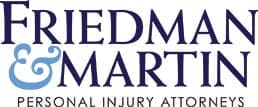Medical Errors Attorney Savannah
Medication errors happen all too often and can be cause for litigation due to negligence. Considering up to 6,800 prescription medications and over the counter drugs are available in the United States, it is no surprise that mistakes are made by pharmacies which prescribe and dispense drugs.
Between 7000 to 9000 people die as a result of preventable medication error, and hundreds of thousands more experience (and often do not report) adverse effects or complications related to medicines. Therefore, it is understandable that medication errors are considered a serious health concern. Yearly in the USA, 3.8 million inpatient admissions and 3.3 million outpatient visits result in preventable medication errors. Over 20 billion has been spent each year caring for these type patients, whose conditions include both psychological and physical pain.
As a patient who has experienced first-hand the negative effects resulting from medication errors, you naturally lose trust in the healthcare industry that exists to help you. Understanding what constitutes a medication error can be helpful in determining if you may have legal rights.
You may have taken a drug that was the incorrect dose, was the wrong medicine, was medicine intended for someone else, was medication prescribed for someone but given to you, was a medication that was not labeled correctly (was medicine A in the bottle when it should have been medicine B in the bottle), was a tainted medication, all of which could be a pharmacy or physician error.
The National Coordinating Council for Medication Error and Prevention (NCCMERP) has approved the following as its working definition of medication error: “… any preventable event that may cause or lead to inappropriate medication use or patient harm, while the medication is in the control of the health care professional, patient, or consumer. Such events may be related to professional practice, health care products, procedures, and systems including: prescribing; order communication; product labeling, packaging and nomenclature; compounding; dispensing; distribution; administration; education; monitoring; and use.”
Because there are various steps to getting a prescribed drug into the hands of a patient, there are opportunities for mistakes to be made along the way. The most common mistakes occur due to incorrect diagnosis, prescribing errors, dose miscalculations, poor drug distribution practices, drug and drug device related problems, incorrect drug administration, failed communication and lack of patient education, according to Michael R. Cohen, in Medication Errors, 2nd Edition, for the American Pharmaceutical Association in 2007.
Furthermore, the AMCP (Academy of Managed Care Pharmacy) states that preventable errors occur because systems for safely prescribing and ordering medication are not appropriately used. When a breakdown occurs in the various steps and in these systems, patients can become mildly or seriously ill and sometimes die.
It is widely accepted that medication error is the most common and preventable cause of patient injury. The giving of the wrong drug or dose, by the wrong route of administration, to the wrong patient or at a wrong time results in substandard care, which could result in a medical negligence claim. Friedman & Martin has successfully settled multiple cases of medication errors and understands the intricacies of this practice area. Contact Friedman and Martin, LLP at 912-232-8500.
